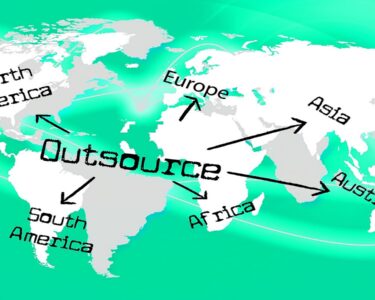Almost everyone prepares for unexpected circumstances to avoid as much irreversible damage as possible. Similarly, it is highly crucial for businesses to always have a contingency plan to prevent undesirable losses.
A contingency plan reduces significant risks and ensures that the business continues to function as efficiently as possible. The first battle many business owners face is how to draw up a contingency plan. It is essential to note that creating a contingency plan is no child’s play. Instead, it requires excessively high concentration and solid strategic ideas to succeed. Remember, a contingency plan is a backup and, most times, a business’s last resort. Hence, no business owner can afford for it to fail.
When creating a contingency plan, begin by compiling all of the big and small risks. Assess all the risks and prioritize them based on their likelihood and severity. Next, identify the risks. Categorize them according to the importance level that you and your stakeholders deem appropriate. One effective way would be to categorize them in the following method: high severity and medium likelihood, high severity and low likelihood, and so on. After that, create a contingency plan for each essential risk. For instance, these could include your immediate response to unforeseeable economic crises or utilizing antivirus options to identify malicious online encounters and eliminate them. Once done, share and maintain your contingency plan. Ensure it’s easily accessible, and you can act on it whenever required.
Forming such a plan is an arduous task. It’s tiring and often seems unnecessary. However, it is worth the effort because contingency planning comes with several benefits—some of which we have mentioned below.
Table of Contents
Enhances public relations
Today’s world is becoming exceedingly competitive. It is becoming increasingly challenging for small businesses to survive due to tough competition and various products serving as substitutes. Increased competition also means an increased risk of failure and untrue rumors. Therefore, a contingency plan can do wonders for you. It can help you maintain your position and also assist you in reaching your audience in more meaningful, unique ways.
Business owners probably know the importance of maintaining public relations. Public relations is essential to companies because it bridges the gap between a business and its potential customers and increases brand credibility. Public relations also strengthen community relations by encouraging you to build ties with the local market. It offers accessibility for your consumers, enhances your online presence, and promotes brand values. It can tremendously increase your firm’s sales, profits and change peoples’ perception of your brand.
Reduces operational risks
Disruptions are the last things any functioning business wants. Other than leading to irrecoverable losses, operational risks can damage the brand name and cancel the license for the entire organization. Uncertainties can sometimes even lead to the permanent closure of businesses and enormous losses for employers and employees.
Contingency planning, however, can prevent such scenarios. With an active contingency plan, you will know what to do when and how to act most effectively.
Boosts credit availability
A contingency plan can help you save up enough business credit to survive disasters. Credit availability is substantially essential for all businesses. It enables you to cover day-to-day business activities and provides you with the capital to expand. With credit, you can hire more productive labor, purchase inventory, and access cash during unprecedented situations. Higher business credit means banks are more willing to lend you money because your brand has become more reliable. You can purchase more machinery and new equipment required to continue running your business efficiently. With business credit, you get easy access to loans, better loan terms, and protection of your finances.
You also get better terms from your suppliers and vendors and enjoy several company-specific rewards. Firms with proper contingency planning often suffer lower losses because vendors often give raw materials to businesses on credit.
Ensures continuity of work
Hindrances in operations can be highly disadvantageous for companies. They can lead to unsustainable practices, high costs, and even stagnation. Sometimes companies also have to make significant marketing shifts that are highly time-consuming and require excessive effort.
Uncertain scenarios such as labor unions, natural disasters, or strikes can pause operations and cause delays in work. In such cases, contingency plans work pretty well. They can quickly help you identify reasons behind declining performance so you can act accordingly.
Enhances trustworthiness
Instilling trust in the workplace is imperative. Trustworthiness ensures your employees and customers that you will do the right thing. It provides them with a sense of security and raises your brand’s integrity. It boosts morale and is suitable for motivating employees.
Trust builds teamwork and collaboration, decreases hostility in the workplace, and improves efficiency. It overcomes resistance to change, increases employee loyalty, and promotes ethical decision-making.
By showing your employees and customers that you are trying not to lose your business under worst-case scenarios, you automatically gain their trust. A contingency plan ensures stakeholders that you are prepared to handle any future failure and disruptions in business activities in the most efficient manner.
Avoids panic
Panicking at something unprecedented is natural but not healthy. Panicking can lead to further disturbance in operations and make situations much worse. Your workplace productivity will dip, and you’ll witness high employee turnover and significant damage to your company name. Panicking can also trigger mental stress that can lead to ineffective decision-making.
An adequately documented plan would tell everyone what to do during emergencies effectively. However, a well-planned contingency plan can play a vital role in averting panic. It pushes employees to make better decisions, move past their fears, and jump into recovery mode.
Conclusion
No business is risk-free. While you can’t eliminate risks, you can certainly minimize them. Contingency planning is an excellent concept to avoid future losses and enjoy several benefits even during unaccounted events.
The recent Pandemic is a perfect example of unprecedented crises and businesses going haywire. Several studies show that companies that didn’t prepare for such a disastrous Pandemic suffered considerably more than those who did. So, those with a plan B made the most of the Pandemic by manipulating the new-era opportunities.




